Contact Us
Washington Semester Program on a map
Washington Semester Program 4801 Mass Ave, NW, 4th Floor Washington, DC 20016 United StatesMeet Our Expert Faculty
John Calabrese
Assistant Professor
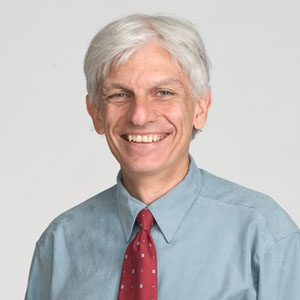
About
Expertise: Foreign Policy
Background
B.A. Georgetown University; Diploma and PhD, The London School of Economics. Served as a resident scholar at the Middle East Institute (MEI); Book Review Editor of The Middle East Journal; and Director of MEI's Middle East-Asia Project (MAP). He is the author of China's Changing Relations with the Middle East and Revolutionary Horizons: Iran's Regional Foreign Policy. He has edited several books, including Transatlantic Cooperation on Protracted Displacement: Urgent Need and Unique Opportunity; and written numerous articles and book chapters on the international relations of the Middle East. Teaches in Washington Semester, pioneered the Graduate Gateway and has worked with Monash University's summer in Washington program. Joined the faculty in 1998.
Highlights
Just last spring the class held 34 individual guest briefings, including the House Committee on Foreign Affairs, the Senate Foreign Relations Committee, the State Department, the embassies of Afghanistan and the UAE, the Mexican Cultural Center, European Union Delegation to the United States, American Enterprise Institute, Center for American Progress, Center for the National Interest, Heritage Foundation, McCain Institute, Atlantic Council of the United States, Center for Strategic and International Studies, Carnegie Endowment for International Peace, Arab Gulf Institute, U.S. Institute of Peace, The Hudson Institute, and the Congressional Research Service.
Jeffrey Crouch
Assistant Professor
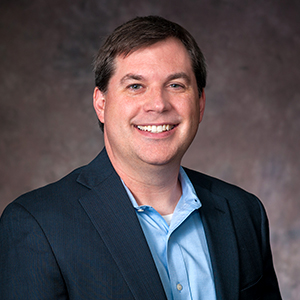
About
Expertise: Federal Executive Clemency/Presidential Pardons
Background
B.A., Hope College; J.D., University of Michigan Law School; M.A. and Ph.D., The Catholic University of America. Dr. Jeffrey Crouch is an assistant professor of American politics at American University. He is a nationally recognized expert on federal executive clemency, or the presidential pardon power. Dr. Crouch's commentary on pardons appears in the New York Times, the Washington Post, the Atlantic, the Los Angeles Times, Politico, NBC News, Newsweek, The Hill, and other media outlets. He is Editor of Congress & the Presidency journal, Coeditor of the Congressional Leaders book series for the University Press of Kansas, and a Fellow at the Center for Congressional and Presidential Studies (CCPS). The University Press of Kansas has published all three of his books, The Presidential Pardon Power; The Unitary Executive Theory: A Danger to Constitutional Government(coauthored with Mark J. Rozell and Mitchel A. Sollenberger); and Newt Gingrich: The Rise and Fall of a Party Entrepreneur (coauthored with Matthew N. Green). Among the many courses that Dr. Crouch has taught are The U.S. Presidency, The Presidency and the Executive Branch, and Presidential Scandals.
Highlights
In the Washington Semester Program, students are immersed in Washington, DC and learn how to thrive in a fast-paced, challenging professional environment. My students quickly become more familiar with American political institutions and public policies, in part through meetings with a diverse array of speakers that includes former members of Congress, trail-blazing lawyers, Pulitzer Prize-winning authors, and Sundance Award-winning filmmakers.
Gul Gur
Professional Lecturer
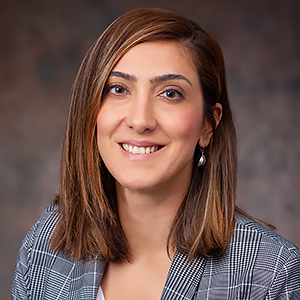
About
Expertise: International Peace and Security
Background
Gul M. Gur is a professorial lecturer at the Office of Global and Immersive Studies where she teaches courses on intercultural understanding, US politics and government, international security, and peace. Her research interests include identity conflicts, history and memory politics, minorities, and youth. She also teaches a Global Conflict Analysis and Resolution course at George Mason University's School for Conflict Analysis and Resolution. Previously, she worked at various non-governmental organizations in Washington D.C. and Istanbul including Search for Common Grounds, Institute for Economics and Peace, Economic Development Foundation. She is also involved in youth programs and worked with youth from conflict areas including Central and South Asia, Korea, and the US. She speaks Turkish and English.
Highlights
Our classes explore the root causes of global conflicts and security issues and consider various options to deal with them by drawing on the peace and security studies. Students engage in class topics through experiential learning activities, site visits, and guest speakers from D.C. and all around the world who work in the field of peace and security. Previously, we had visited and had key guest speakers from various organizations such as Wilson Center, United States Institute of Peace, Partners Global, Search for Common Ground, USAID, Carnegie Endowment for International Peace, State Department and Embassies (i.e. Turkish Embassy, Embassy of Mali), International Organizations such as World Bank, United Nations, UNDP.
Experiential learning activities are also very integral part of our classes. We simulate major international meetings (i.e. the U.S. and North Korea Hanoi Summit, Cyprus Hydrocarbon Negotiations, India-Pakistan Crisis Management and similar), engage in Problem Solving Workshops (i.e. Israel-Palestine, Georgia-South Ossetia), and practice and learn conflict resolution skills such as mediation, facilitation, and dialogue.
Mohamed Nimer
Assistant Professor
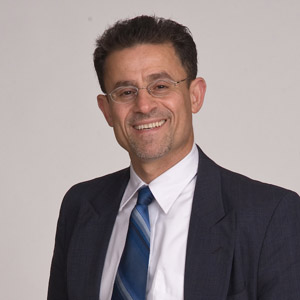
About
Expertise: International Business, Economics and Politics
Background
Areas of Expertise: Quantitative Methods, International Development, Middle East
Dr. Nimer teaches International Affairs and Intercultural Understanding at the School of Professional and Extended Studies. He is author of The North American Muslim Resource Guide: Muslim Community Life in the United States and Canada (Routledge, 2002). His recent writings include Americanizing Islamists (The American Interest, July/August, 2011) and The Muslim Brotherhood in the United States: Citizens with Foreign Attachments? (Middle East Policy, Vol. 17, No. 4, Winter 2010).
Dr. Nimer conducted field research on Middle East politics and development. He traveled extensively in Kuwait, Egypt, Jordan, Lebanon, Pakistan, and Turkey.
Dr. Nimer also teaches religion and politics worldwide at the School of International Service. His research interests include the Middle East, American Muslims, political Islam and peacebuilding.
Jeff Sosland
Assistant Professor
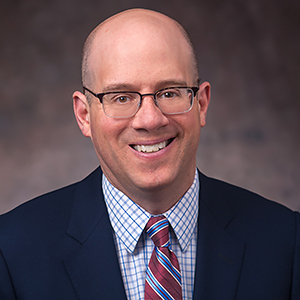
About
Expertise: International Business, Economics and Politics
Background
A.B. Harvard University; Ph.D. Georgetown University. Has worked for an energy and environmental non-profit firm and served on the board of directors for large and small nonprofit organizations and chaired numerous strategic planning committees. Living and working in DC for the past three decades, he has an extensive Washington network of business and policy leaders, which he mobilizes for his students.
A researcher and ambassador of WSP’s experiential learning, Dr. Sosland coauthored with Dr. Diane Lowenthal journal articles on experiential education and internships, including “Making the Grade: How a Semester in Washington May Influence Future Academic Performance” and “The Forgotten Educator: Experiential Learning's Internship Supervisor” (both in Journal of Political Science Education). This research received awards from the American Political Science Association (APSA) and from the National Society for Experiential Education (NSEE). In 2021, Drs. Sosland and Lowenthal published “Assessment in Internships: A 360-Degree Review for Students, Supervisors, and Professors,” in the edited book Political Science Internships: Towards Best Practices. Dr. Sosland who joined the faculty in 2003, also teaches the WSP Research course and Internship class.
Dr. Sosland is an expert on the global political economy of water and teaches an American University course on the global water crisis. His most recent book in this area is on water politics and the Arab-Israeli conflict, Cooperating Rivals: The Riparian Politics of the Jordan River Basin (State University of New York Press). Dr. Sosland was awarded a Post-Doctoral Fellowship from Hebrew University of Jerusalem for this research.
Highlights
My seminar explores globalization’s pivotal issues, including great powers competition (US-China-EU-Russia), international institutions (World Bank and IMF), sustainable development, growing inequality, climate change, the infodemic, the pandemic, business ethics, supply chains, trade, as well as finance and monetary policy. We will not only study these issues but also hear from expert guest speakers. Furthermore, students are encouraged to engage speakers with thoughtful questions. Past guest speakers included executives from multinational corporations such as UPS, DHL, 3M, Boeing, Airbus, Bank of America, Microsoft and innovative start-ups. Many of the past guest speaker talks have taken place in in their offices, among which are the Federal Reserve, World Bank, IMF, US Capitol and think-tanks (Brookings, American Enterprise Institute, Cato and Peterson). The seminar has also focused on globalization-related US Federal agencies, such as the FDIC, CFPB and SEC. Washington, DC is our classroom, and I encourage my students to take full advantage of their surroundings during their study of globalization.
Adjunct Faculty
Mark Sherman
Mark Sherman is assistant division director for probation and pretrial services education at the Federal Judicial Center. He leads a group that develops and delivers criminal justice continuing education, training, and consulting for federal probation and pretrial services departments, district and magistrate judges, federal defenders, and other stakeholders. From 1999 to 2011 Mark served as senior education attorney at the FJC and was responsible for developing and delivering continuing education, training, and consulting on a variety of issues for judges, attorneys, and probation and pretrial services officers. An educator for his entire career, Mark has also practiced law and provided legal consulting services. His areas of practice and consulting included international human rights, international criminal defense, and affordable housing. Prior to joining the FJC, Mark was a visiting teaching fellow at the Catholic University of America Columbus School of Law where he helped develop the school’s Lawyering Skills program for first year students (1989-1991). He was a clinical teaching fellow at Georgetown University Law Center’s Harrison Institute for Public Law affordable housing law clinic (1991-1993); an assistant professor of American politics and public law at American University’s School of Public Affairs (1993-1999); and adjunct associate professor of law at American University’s Washington College of Law (1993-1999). While at American, Mark also served as academic director of the Law and Politics Institute, a project of the Center for Congressional and Presidential Studies (1997-1998). He remains on the adjunct faculty of American’s School of Professional and Extended Studies, where he teaches undergraduate research and internship courses in justice. He has also served as adjunct instructor at the University of Oregon School of Law (2013), and adjunct associate professor of criminal justice at the University of Maryland University College (2006-2007). Mark received a B.A. from George Washington University in 1986, a J.D. from the University of Miami in 1989, and an LL.M. from Georgetown University in 1993. He is a member of the District of Columbia Bar.
Adam Sharon
Adam Sharon is a Managing Director at FGS Global. He is a skilled communicator and media strategist specializing in the intersection of public affairs, communications, and legislative priorities for international clients. Working with sovereign nations, multinational corporations, and Non-Government Organizations at FGS Global, Adam applies these capabilities to support a diverse client base.
Adam possesses the unique experience of having served as the Communications Director for the Senate Foreign Relations Committee under Chairman Robert Menendez (D-NJ) and Ranking Member Ben Cardin (D-MD) and prior to that, on the House Foreign Affairs Committee under Chairman Howard Berman (D-CA) and Ranking Member Eliot Engel (D-NY). While working in Congress, he was engaged in myriad foreign policy issues, including Iran sanctions, the Authorization for the Use of Military Force in Syria, and the reauthorization of the President’s Emergency Plan for AIDS Relief.
He has worked closely on these and other issues with Democratic and Republican offices on Capitol Hill, as well as with international organizations, foreign governments, NGOs, civil society groups, and think tanks. Adam has helped author Op-Eds in the New York Times, Washington Post, Wall Street Journal, USA Today, and other leading publications.
Adam received his MA in international affairs and international economics from Johns Hopkins University, School of Advanced International Studies (SAIS) and a BA from McGill University in Montreal where he graduated with distinction. Adam is an adjunct professor at American University.
Susan Erenrich
Susan (Susie) J. Erenrich is a social movement history documentarian. She uses the arts for social change to tell stories about transformational leadership, resilience, and societal shifts as a result of mobilization efforts by ordinary citizens. Her career in nonprofit/arts management, civic engagement, community organizing and community service spans more than four decades. She has diversified teaching experience at universities, public schools and community-based programs for at-risk, low-income populations; has edited and produced historical audio recordings and anthologies; and has extensive performance, choreography and production experience.
Susie holds a Ph.D. in Leadership and Change from Antioch University, a MS in Conflict Analysis and Resolution from George Mason University, a MA in Performing Arts from American University, and a BA in Sociology from Kent State University.
Susie is the editor of The Cost Of Freedom: Voicing A Movement After Kent State 1970; Freedom Is a Constant Struggle: An Anthology of the Mississippi Civil Rights Movement (a reprint was released in November 2021 by NewSouth Books); Kent & Jackson State 1970 – 1990; co-editor of Grassroots Leadership & the Arts for Social Change (a volume in ILA's BLB series); and co-editor of the forthcoming book, A Grassroots Leadership & Arts For Social Change Primer For Educators, Organizers, Activists & Rabble-Rousers.
Published articles and chapters include: “Funding Leadership Development Training For Cultural Activists” for The Foundation Review; “Performing Arts For Everyone” for the American Journal of Arts Management; “Women Troubadours, Horizontal Leadership & The Southern Freedom Struggle In Mississippi”, a chapter written for Leadership, Popular Culture and Social Change; “Peoples’ Voice Café: Leading Horizontally and Collectively For More Than Forty Years” for Reimagining Leadership On The Commons: Shifting The Paradigm For A More Ethical, Equitable & Just World; and From Woodstock To Kent State, a fall 2021 guest column for The Grassroots Leadership & The Arts For Social Change Corner.
CDs produced include: Freedom Is A Constant Struggle: Songs Of The Mississippi Civil Rights Movement; The Long Walk To Freedom Reunion Concert; and Songs Of Dissent Live!
For five years, Susie was the producer/host of Wasn't That A Time: Stories & Songs That Moved The Nation, a community radio broadcast on WERA.FM. Since January 2018, she has also been the editor of The Grassroots Leadership & The Arts For Social Change Corner in partnership with the International Leadership Association. The Corner is a monthly guest column that highlights interdisciplinary approaches to change in the following areas: 1. Engaged Theatre As A Form Of Grassroots Leadership; 2. Interviews With Troubadours Of Conscience; 3. Exhibitions: Art, Politics & Resistance; 4. Grassroots Leadership & Cultural Activists; 5. Grassroots Leadership, Participatory Democracy & The Role Of The Arts In Social Movements; and 6. People Power, Community Building & The Arts For Social Change.
